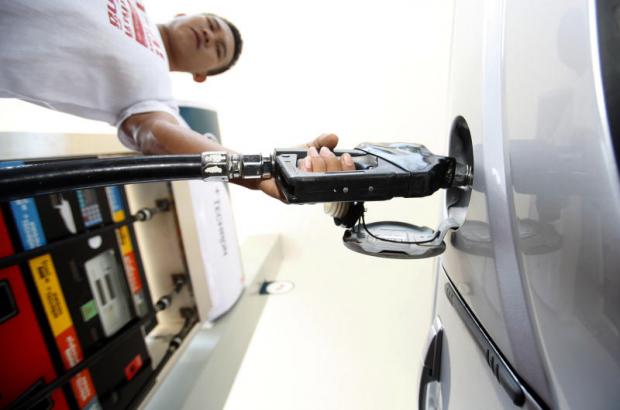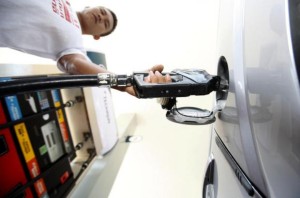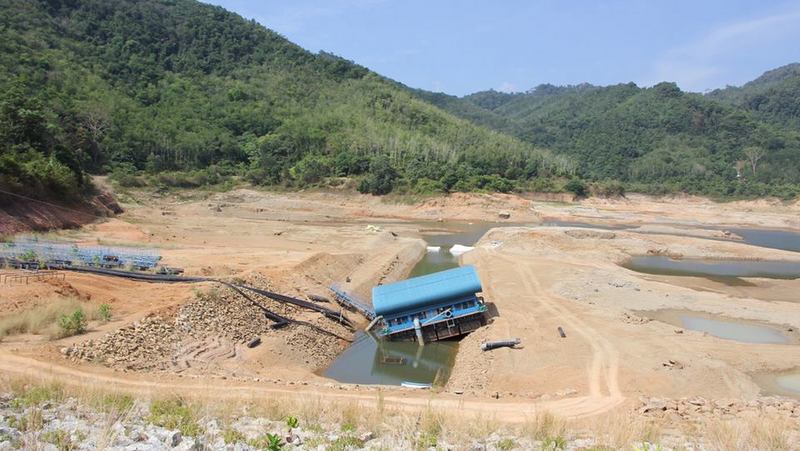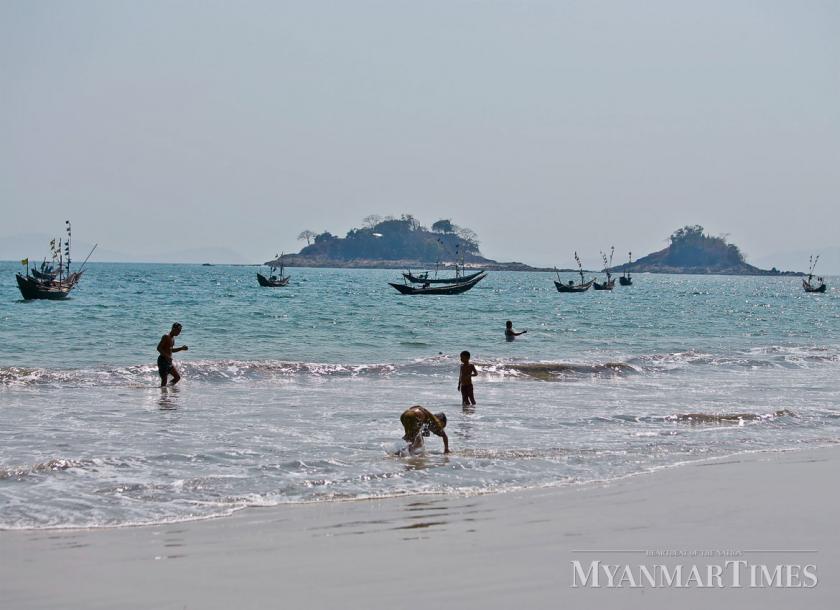The Energy Ministry’s plan for 2015 paves the way for full energy reform, says Energy Minister Narongchai Akrasanee.
In 2015, the petrol prices and diesel will be at the same level as part of the Energy Ministry’s energy reform. THANARAK KHUNTON
Early in the year, the ministry plans to adjust the price of diesel and petrol to the same level and increase tax on both fuels in a range of three to 5.5 baht a litre.
Policymakers plan to phase out gasohol 91, leaving only four petrol types (premium petrol, gasohol 95, gasohol E20, gasohol E85), and will prod motorists to use more E20 and E85.
The move is aimed at reducing unnecessary operating costs for retail fuel operators by phasing out the types that have fewer users.
After unwinding heavy subsidies of liquefied petroleum gas (LPG) and compressed natural gas (CNG), officials will further tax both gases because they are largely used by trucks and commercial cars whose weight is more damaging to roads and highways.
CNG is taxed at 7% of the price, while LPG is taxed at 2.38 baht per kilogramme excluding VAT.
The Energy Ministry plans a promotional campaign to encourage the use of CNG instead of LPG in the transport sector.
In the upstream petroleum sector, January will see the opening of bids for oil and gas exploration in 29 blocks nationwide, to be concluded by the end of February.
The auction of new blocks has been delayed since 2008.
Oil and gas proven reserves in domestic resources can supply about seven years of energy from 2015 if is no new proven reserves are discovered.
Gas and liquid proven reserves now stand at 8.41 trillion cubic feet and 461 million barrels, respectively.
In the power sector, the amended power development plan (PDP) and alternative energy development plan will be finalised.
Also, another gas and oil development plan will be settled before integrating it with the master PDP.
These plans will span 2015 to 2036.
Policymakers are also moving forward to diversify away from a reliance on natural gas, which generates nearly 70% of electricity in Thailand.
A coal-fired power plant in Krabi is being pushed despite strong opposition.
Thailand’s power mix includes natural gas (68%), imported coal and lignite (19%), electricity from Laos (7%) and renewable energy (6%).
The Energy Ministry wants to boost the proportion of coal usage for electricity to 35-40% within a decade, while gas would fall to 40%.
By mid-2015, regulations for the gas business structure will be ready as PTT finishes the spin-off of its pipeline and refinery arms.
In the second half of the year, the concessions of petroleum production by PTT Exploration and Production Plc and Chevron Offshore Thailand’s resources in the Gulf of Thailand will be clarified as to whether they will be renewed.
Energy savings and more efficient consumption will be gradually enacted under 150 projects throughout the year.
Source: http://www.bangkokpost.com/business/news/454374/energy-reform-set-to-continue




